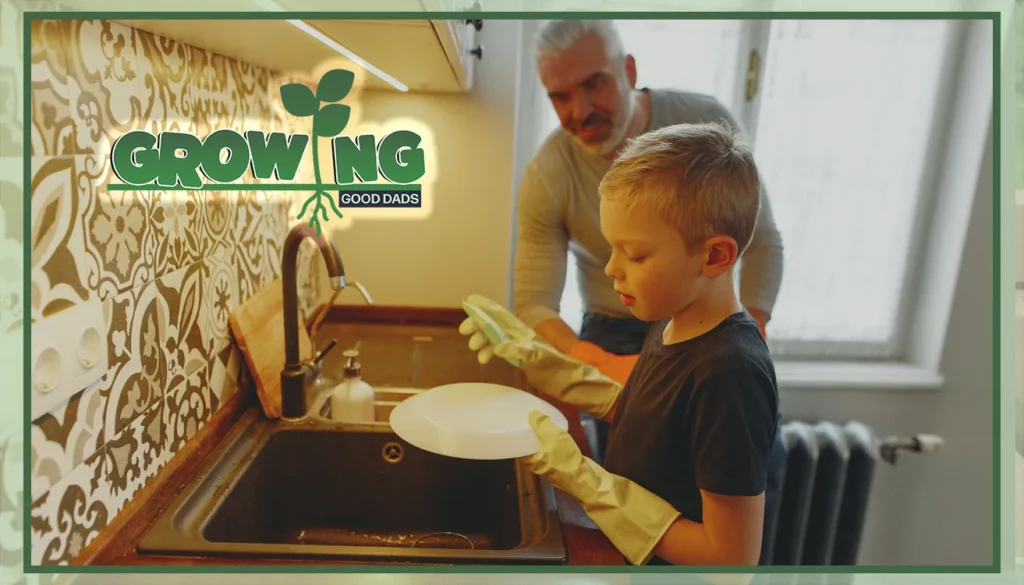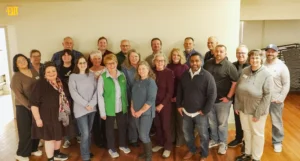Tonight with JD, I had a realization that children become truly mature and compassionate when they realize that, if they CAN do something, they NEED to do it for themselves.
I believe we, as parents, need to encourage our kids to do things they are capable of doing on their own and only ask for help if they need it. Otherwise they become entitled and expect others to do things for them, like a toddler. Entitlement makes people very selfish and childlike.
Independence, self-control, and self-reliance are signs of maturity. These traits help us show compassion towards others. If you can do something for yourself, or for your family, or can help someone in need, you do.
JD is still learning that if he is able to do something on his own, then he is expected to do it. He knows how to peel carrots and was so proud of himself the first time he did it! He has been peeling carrots for a couple of weeks now.
Today he said, “Mom, my arms are tired, can you peel these carrots?” This was after I offered to make him a protein shake.
I said, “No, Buddy, you know how to peel them. I’m making the shake right now.”
Plus, I’m thinking, dude, you’re 4. I’m 40! You don’t know tired!
He growls, “Mom! Just peel the carrots!”
I said, “I can either peel the carrots or make your shake. I won’t do both. Which one would you like me to do?”
He says, “Fine, I’ll peel the carrots.”
Two minutes later he says, “Mom! Cut the carrots!”
Meanwhile, I’m still making the shake and say, “You need to ask me nicely if you want my help. And wait until I’m done with what I’m doing.”
“Mom, can you please just cut the carrots!?”
His demanding tone made me pause. I got down to his eye level and said, “You cannot speak to me that way. I will not cut your carrots until you apologize.”

He punches the punching bag (which is why we have it). He storms off, and I send Brent to go and speak to him. Man-to-man. Because as boys and men, a huge sign of compassion and maturity is, even if they can physically force someone to do what they want, they don’t force them or demand it. This is man’s biggest struggle. Do they choose power or compassion?
I know he is still very dependent on us for help, but he definitely needs to respect those helping him. I went through this with the girls, but for some reason, it hits differently with boys.
I have known a lot of parents that have treated their sons like princes and served them hand and foot. I believe men who have difficulty understanding the concept of “If I can, then I do,” especially when it’s something they contributed to, like children or dishes. My theory is that some men may have had parents who spoiled them. They want to be taken care of instead of taking care of (and not just providing for) their families.
Those who have learned independence and personal responsibility wouldn’t need to have the concept of mutual chores explained to them. They don’t have “little boy syndrome.” Little boy syndrome is where a man wants to be taken care of by their wives like their mothers did. At the same time, they expect their wives to respect them.
These men think that going to work is their only required contribution to the household because they weren’t challenged to do things for themselves and were not taught to not take advantage of others.
We all know the golden rule: “Do unto others as you would like to have done to you.” But some people don’t realize that the other important lesson that goes along with it is: “If you give a man a fish, he is fed for a meal. If you teach the man to fish, he will be fed for his lifetime.”
By doing everything for someone even when they treat you poorly, it teaches them selfishness and reinforces the idea that it’s okay to demand/force/coerce someone to get what you want, even if it hurts them (physically, mentally, emotionally, or spiritually).
Doing everything for your capable and able child only does a disservice to them and to their future spouse.
If they can, then they (should) do. We teach “See a need, do a deed.”
Everything in life is a balance.

I love still being needed by my children. Their need for me gives me purpose and keeps them in our nest.
I love serving them (for the most part, haha!) but if they see me doing something and if it’s age-appropriate and they are able to do it themselves, I ask it of them.
This not only helps me create healthy boundaries for myself, but it also teaches my children that asking for help when they don’t need it—or just not doing something because they expect someone else to do it for them—is inconsiderate and selfish.
I am so thankful that I have a husband who understands that cooking, cleaning, and ALL aspects of parenting are mutual. He doesn’t babysit our kids; he is spending time with our kids. He isn’t helping me cook and clean; he is contributing to the household that he creates messes in and is invested in the health of our children.
When one of our kids is struggling in Spelling, he works with them before he goes to work. There are certain things he can’t help with—like the kids’ doctor’s appointments scheduled for the middle of the day—but if he can help, he does.
Life is a balance. Yin and Yang. Give and take.
We are teaching our kids that loving others is hard sometimes. We get frustrated, especially when we feel like someone is holding back—whether that’s help, affection, compassion or something else we need or want—but true maturity and compassion is knowing that if our “wants” are inadvertently taking advantage of or hurting someone, it’s not okay to ask that of anyone, especially a loved one. Ever.




